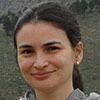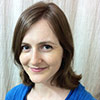Faraz Khalid, Sara Ardila-Gómez, and Kerry Scott
Enthusiastic preparations are underway for the Fourth Global Symposium on Health Systems Research, which is to be held in Vancouver on 14-18 November 2016. This year’s symposium will bring together over 2000 delegates from around the world. As part of the Emerging Voices for Global Health (EV4GH) program, we are thrilled that the conference seeks to include the voices of scholars, practitioners, activists, and stakeholders from minority, indigenous, and “global south” communities. Run concurrently with the symposium, EV4GH provides training, mentoring, and networking opportunities for young health researchers and professionals with a focus on those from the global south.
As part of the EV4GH program, we cherish the inclusive approach of the symposium. But some of us have faced challenges in fulfilling the requirements to enter Canada—the host country for this year’s symposium. While we acknowledge that the Canadian government created a special event code for the visa application process, that conference organizers sent visa applicants the required letters of invitation, and that the Canadian Society of International Health and Health Systems Global were supportive in resolving visa issues, we wanted to explore if these actions were sufficient. We wanted to explore whether the processes worked equally well for researchers from the global south and north.
So we conducted a snapshot survey among participants of the 2016 EV4GH program from 27 countries on their experience of fulfilling the requirements to enter Canada. We received 44 responses (from the total sample of 67), and 68% were from the global south and 32% from the global north. While the entry application for all participants from the global north was processed in less than two weeks, it took 62% of people from the global south more than two weeks. In addition, for 67% of participants from the global north the cost of application was either nothing or less than US$10, while the cost was more than US$10 (ranges between US$10 and more than US$200) for all participants from the global south.
We asked the participants an optional question: to list any difficulties they faced in the application process. All the responses to this question were from the global south, and the most commonly cited challenges were the paperwork, fingerprints, and presenting well padded bank statements. Applicants also incurred high costs related to capturing biometric data, medical examination, and travel—two applicants had to travel to another country for biometrics. With two weeks to go before the start of the conference, four visa or electronic travel authorization applications were pending at the time of the survey and two had been rejected; all rejected and pending applications are from the global south.
While the Emerging Voices from the global north are all able to attend the training program (conducted in the two weeks before the conference), between two and six from the global south will not be able to participate because of visa constraints. We suggest that conference organizers should provide more specific information and support for visa applications. The usual information provided, suggesting that participants “apply for a visa in advance” because “it can take longer than expected,” does not fully convey the challenges that participants may face. Conference organizers should also liaise with host country governments to ensure smooth, subsidized, and priority visa application services for their conference participants.
When deciding a conference’s location, organizers of global health conferences should take into account that certain countries will make it easier for citizens of countries in the global south to participate. Indeed, when asked whether conference organizers should consider “ease of securing visa” as one of the criteria for selecting the conference venue, 90% of our group of young researchers agreed. We are heartened to note that this agreement was equally strong among those from the north and south. We hope the health systems research community is listening. We also hope that the broader global health community will take this into consideration when planning future conferences.
 Faraz Khalid is a PhD candidate at Tulane School of Public Health and Tropical Medicine, USA, and a health financing consultant with the Prime Minister National Health Insurance Program, Pakistan.
Faraz Khalid is a PhD candidate at Tulane School of Public Health and Tropical Medicine, USA, and a health financing consultant with the Prime Minister National Health Insurance Program, Pakistan.
Competing interests: None declared.
 Sara Ardila-Gómez works at the School of Psychology, University of Buenos Aires, Argentina.
Sara Ardila-Gómez works at the School of Psychology, University of Buenos Aires, Argentina.
Competing interests: None declared.
 Kerry Scott is a research associate at Johns Hopkins School of Public Health, USA, and a global health consultant based in Bangalore, India. She is a Canadian citizen and an Indian resident.
Kerry Scott is a research associate at Johns Hopkins School of Public Health, USA, and a global health consultant based in Bangalore, India. She is a Canadian citizen and an Indian resident.
Competing interests: None declared.